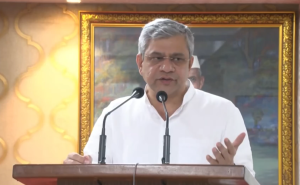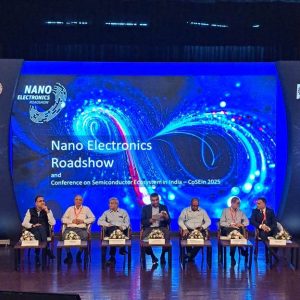India Accelerates Chip Manufacturing with Investment and Global MoUs

The Government of India is making significant strides in semiconductor manufacturing through the Semicon India Programme, which has a total outlay of ₹76,000 crore to develop a robust semiconductor and display ecosystem. This initiative aims to establish India as a global hub for chip production by providing fiscal support, international collaborations, and workforce development programs. The information was shared by Union Minister Jitin Prasada in the Lok Sabha.
To boost semiconductor manufacturing, the government has approved five semiconductor projects, including one fabrication facility and four Assembly, Testing, Marking, and Packaging (ATMP/OSAT) facilities, with a combined investment of approximately ₹1,52,000 crore. These projects are in different stages of implementation and are expected to be completed within the next 4-6 years.
The government has also committed 50% fiscal support for semiconductor fabrication units, display fabs, and compound semiconductor facilities, including Silicon Photonics (SiPh) and Micro-Electro-Mechanical Systems (MEMS) fabs. Additionally, a Product Design Linked Incentive of up to 50% of eligible expenses, with a ceiling of ₹15 crore per application, has been introduced. Companies will also benefit from a Deployment Linked Incentive ranging from 6% to 4% of net sales turnover over five years, with a maximum incentive of ₹30 crore per application.
To strengthen India’s position in semiconductor manufacturing, the government has signed Memorandums of Understanding (MoUs) with the United States, the European Union, Japan, and Singapore. These partnerships aim to facilitate technology exchange, research collaborations, and investment opportunities.
Recognizing the industry’s high demand for specialized skills, India has introduced multiple talent development initiatives. The All India Council for Technical Education (AICTE) has launched new curriculum programs for B.Tech in Electronics Engineering (VLSI Design and Technology), a Diploma in Integrated Circuit (IC) Manufacturing, and a Minor Degree in Electronics Engineering (VLSI Design and Technology). Additionally, the Chips to Startup (C2S) Programme aims to train 85,000 engineers across 113 institutions, with over 43,000 students already enrolled.
Further, the government has established the SMART Lab at NIELIT Calicut to train 1 lakh engineers in VLSI and Embedded System Design within five years. More than 42,000 engineers have been trained so far.
To expand industry collaborations, India Semiconductor Mission (ISM) has signed key MoUs:
- IISc and Lam Research: To train 60,000 engineers over the next decade.
- IBM: To provide access to laboratories, research centers, and internships.
- Purdue University: To promote R&D, commercialization, and skill development in semiconductors.
The Ministry of Electronics and Information Technology (MeitY) is also fostering R&D initiatives in nanotechnology, semiconductor materials, chip design, and semiconductor IP cores, further strengthening India’s semiconductor ecosystem.
Source: PIB




